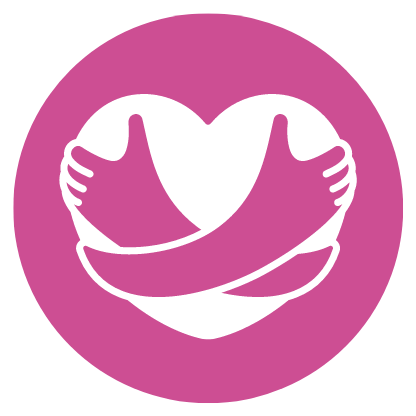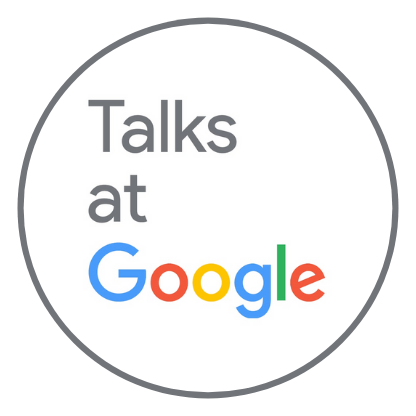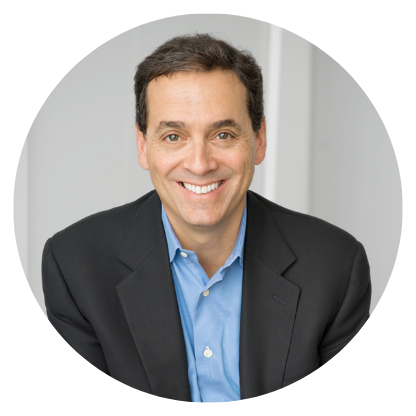When: Secrets of Perfect Timing | Daniel Pink | Talks at Google
Reference: Talks at Google. (2018, May 09). When: The Scientific Secrets of Perfect Timing | Daniel H. Pink | Talks at Google [Video]. YouTube.
We Make Your Education Count

Get the Credit You Deserve and Become the Most Attractive Job Candidate by Earning and Posting A+ Badges to Your Linkedin Profile.
Sign Up to Get Started at Accredicity
|
Discover the scientific secrets of perfect timing and maximize your performance with Daniel H. Pink's insights. Daniel H. Pink presents The Scientific Secrets of Perfect Timing, a research-based approach to making better, smarter decisions on when to do things. He explores five questions: At what time of day should Alphabet hold its quarterly earnings calls? Does it matter at what time of day we do things? Does it matter a little? Does his research reveal that our mood and cognitive abilities change throughout the day in predictable ways, leading to differences in performance, hospital errors, and test scores? His findings suggest that the right time to do something depends on the task and that timing is not just an art, but a science. Learning Outline1. The research into timing and decision-making is spread across many fields. Instructional ContentTime is an essential factor in decision-making and it can have a huge impact on the outcome of our decisions. In his book, When: The Scientific Secrets of Perfect Timing, Daniel H. Pink explores the science behind timing and how we can use it to make better decisions. In his Talks at Google, Pink reveals five questions about timing that can help us make smarter decisions. First, does it matter what time of day we do something? Pink discusses a study of 26,000 corporate earnings calls that showed that the emotional content of the words used changed based on the time of day. This had an effect on the stock mispricing for the companies hosting the calls. He also mentions research in anesthesiology, endocrinology and molecular biology that suggests that our cognitive abilities and mood can change throughout the day. Second, when should we start a project? Pink argues that the best time to start a project is at a peak moment. He explains that we tend to move through the day in three stages - peak, trough, recovery - and that our mood and cognitive abilities can vary dramatically during these stages. Third, when should we abandon a project? Pink suggests that it's important to know when to quit and that we should consider the sunk cost of a project when deciding whether to continue or not. Fourth, when should we exercise? According to Pink, the best time to exercise is during the recovery stage. He explains that during this stage, our energy levels are higher and our bodies are better able to cope with the physical demands of exercise. Finally, when should we have meetings? Pink advises that meetings should be held during the peak or recovery stages, as this is when people are more likely to be productive and creative. Overall, Daniel H. Pink's Talks at Google provides valuable insights into the science of timing and how it can be used to make better decisions. By understanding the research and applying the five questions to our daily lives, we can make more informed decisions and get the best out of our time. Productivity
|

Daniel Pink wrote this book because he wanted to make better decisions about when to do things, instead of making them in a haphazard way. He researched many fields, including economics, social psychology, molecular biology, and anesthesiology, to find out how the time of day affects what we do and how we do it. It turns out that even if people are well-prepared and have something at stake, the time of day still affects their performance in a big way. So it's important to know when the right time is to do different activities. For example, hospitals make more mistakes in the afternoon, and students do better in math if they take it in the morning. Knowing the right time to do things can help us do better in whatever we do! Video Quotes1. “We think that timing is an art, but it’s really a science. We don’t have to make these timing decisions in such a haphazard, intuitive, guesswork-centered way. We can make them in a better, smarter, more systematic way.” - Daniel H. Pink 2. “Our cognitive abilities don’t remain the same over the course of the day. They change. They change in predictable ways. They sometimes change in dramatic ways, and the right time to do something depends on what you’re doing.” - Daniel H. Pink 3. “If you learn nothing else from our little session here this morning, don’t go to the hospital in the afternoon if you can avoid it. There are predictable differences in hospital performance based on time of day.” - Daniel H. Pink Related Quotes"The way we spend our days is, of course, the way we spend our lives." -Daniel H. Pink "We're living at a time when we have unprecedented control over when we do things." -Daniel H. Pink "These are moments of possibility, and if we get them right, our lives can become more rewarding, more productive, and more meaningful." -Daniel H. Pink Competencies1. Time Management Learning Outcomes1. Analyze the research on the effects of time of day on behavior and performance. Sample Answers1. From the video, I learned that time of day can have an effect on our performance and decisions. For example, the NYU researchers found that afternoons earnings calls were more negative, irritable, and combative, leading to temporary stock mispricings. 2. Additionally, I learned that our mood and cognitive abilities change throughout the day in predictable ways. We tend to move through the day in three stages-- peak, trough, recovery, peak, trough, recovery. 3. Lastly, I learned that the right time to do something depends on what you're doing. For example, the researchers found that anesthesia errors are four times more likely at 3:00 PM than at 9:00 AM, and colonoscopies are more successful when done in the morning. Daniel H. PinkDaniel H. Pink is a New York Times best-selling author, speaker, and business/technology adviser. He has written six books on the changing world of work, including the New York Times bestsellers A Whole New Mind (2005) and Drive (2009). He is the host of the podcast “The Moment with Daniel Pink” and has been featured in the New York Times, Fast Company, Wired, and the Harvard Business Review. He is the recipient of the Thinkers50 “Gladwell-McKenzie” award for “originality and insight.” He is also a former White House speechwriter and a former chief speechwriter for Vice President Al Gore. He is an expert on The Scientific Secrets of Perfect Timing because he has studied the science of timing and has written extensively about the implications of timing in the workplace. He has conducted research on the effects of timing on decision-making, productivity, and creativity. Daniel H. Pink Learning DesignThe competencies of Time Management, Healthy Behaviors, and Decision Making are all important for helping students become more productive. Time management helps students learn how to prioritize and manage their tasks in order to get the most out of their day. Healthy behaviors help students learn how to create and maintain healthy habits that will support their productivity. Decision making helps students learn how to make sound choices and how to weigh the pros and cons of various options. To help build these competencies, a framework or pedagogy that can be used is a blended learning approach. This approach combines online learning, such as e-learning or virtual classrooms, with traditional classroom instruction. This allows students to learn the material at their own pace and in a way that best suits their individual needs and learning styles. The instructor can also provide feedback and guidance as needed. Additionally, the instructor can provide practical exercises, such as role-playing scenarios, to help students practice and hone their skills. By engaging in active learning, students can develop the competencies needed to become more productive. AssessmentQ. According to Daniel Pink's research, when is the right time to do something depending on the task? Questions1. What research or evidence is there to suggest that timing can be a science instead of an art? KeywordsPerfect Timing, Daniel H. Pink, Earning Calls Alphabet, Cognitive Abilities, Morning Math GPAs, Anesthesia Errors, Colonoscopies Polyps, Unnecessary Antibiotics, Hand Washing Hospitals Facts1. The NYU researchers used LIWC to analyze 26,000 corporate earnings calls, finding that afternoon calls were more negative and led to temporary mispricings. Trends1. Analyzing how the time of day can affect the mood of employees in the workplace, and developing strategies to combat this. SourceThis learning instructional guidance was formulated using the GPT-3 language model created by OpenAI. ShareMaximize productivity and performance with the #ScientificSecretsOfPerfectTiming! 🤓 Get the tips you need to make the most of every day from Daniel H. Pink's book 📚 #Efficiency #Productivity #Success 📈 @Accredicity |









 22 Creds - Productivity
22 Creds - Productivity



